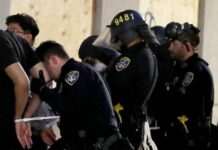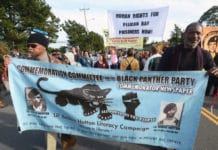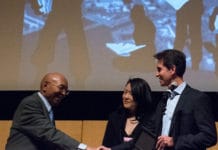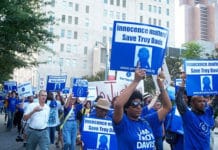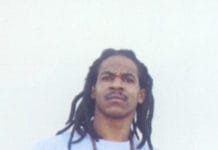by Brian Goldstein

On any given spring day, California’s capitol building in Sacramento is a hub of activity. Advocates, policymakers and the public file in and out of the hearing rooms to debate legislation. The halls are often filled with groups organized to lobby around a specific issue.
These events are commonly known as lobby days, given that groups come for a full day to lobby around pending legislation. The well-trained eye can spot them by a shared characteristic, whether it is a group that wears the same T-shirt or sticker. Yet, the presence or absence of groups says something about what types of voices are listened to in the capitol. Quite simply, a voice not raised is a voice not heard.
On May 19, over 200 people came to the capitol as part of a lobby day for justice-involved and formerly incarcerated individuals, with participants travelling from around the state. The second annual Formerly Incarcerated People’s Quest for Democracy was organized by Legal Services for Prisoners with Children, Communities United for Restorative Youth Justice (CURYJ), Youth Justice Coalition (YJC) and others. CJCJ (Center on Juvenile and Criminal Justice) was pleased to co-sponsor the event.
This year the event focused on 16 bills, including policies on reentry, sentencing reform and sealing of juvenile records. This proved fortuitous timing, as May 23 was the legislative deadline when policies have to move out of their respective fiscal committees. While California stands poised to adopt key legislation on criminal justice, the voices of justice-involved individuals are noticeably absent.
Throughout the day, participants shared a perspective not often heard in the corridors of the capitol, including their stories of struggle and perseverance. Many candidly explained the programs and interventions that were most effective.
Others shared the ongoing challenges of reentry and success following contact with the justice system. For example, young people often struggle to pay excessive fees to seal their juvenile records. Both Senate Bill (SB) 1038 (Leno) and Assembly Bill (AB) 1756 (Skinner) address these issues. Participants also advocated on behalf of SB 1029, which would restore CalFresh and CalWORKS benefits for those with certain drug felony convictions. Finally, many spoke in support of SB 1010 (Mitchell), which would end the sentencing disparity between crack and powder cocaine.
One day in the capitol will not fundamentally change California’s flawed justice policies, which come at great fiscal and human expense. Long-term engagement with the political and legislative process is necessary for such change.
However, the Quest for Democracy Lobby Day was one step in this ongoing process. California has found itself in this position because the perspectives heard last week are not often elevated in policy making. When policy is informed through a more balanced and inclusive perspective, it is more difficult for decision-makers to ignore the deleterious impact of such statewide policies.
CJCJ continues to seek forums that are inclusive of all voices, as opportunities to impact policymakers and decision-makers. More importantly, we hope all participants in the lobby day recognize their unique and powerful voices. California’s democratic process works best when all voices are heard and appreciated.
Brian Goldstein, policy analyst for the Center on Juvenile and Criminal Justice, can be reached at brian@cjcj.org.

 Store
Store




